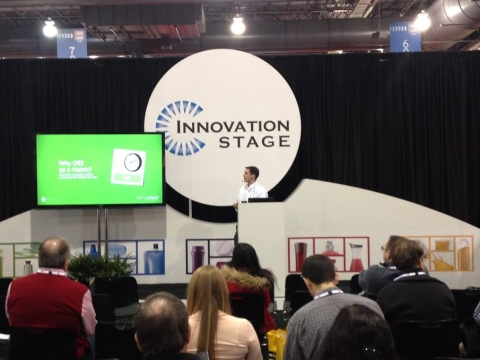PACK EXPO East Attracts 6,500 Attendees to Debut Show in Philadelphia

The debut of PACK EXPO East in Philadelphia drew 6,500 attendees, 386 exhibiting companies and 92,413 net square feet of exhibit space at the Pennsylvania Convention Center, according to show owner and producer PMMI, The Association for Packaging and Processing Technologies.
Its location in Philadelphia placed PACK EXPO East within 200 miles of one-third of U.S. consumer packaged goods companies (CPGs), including the life science and pharmaceutical industries, which have a stronghold in the region.
Attendance — which drew primarily from Pennsylvania (35.5 percent), New Jersey (24.6 percent) and New York (10.3 percent) — surpassed initial projections by 60 percent, according to show management.
“All you have to do is look at the numbers to see just how well PACK EXPO East met the need for processing and packaging in the Northeast,” said Jim Pittas, senior vice president, PMMI.
He added, “The show was the top-tier event PACK EXPO exhibitors and attendees expect.”
For PMMI President and CEO Charles D. Yuska, the success of PACK EXPO East 2015, from its location to the attendee and exhibitor experience, validated PMMI’s 2013 conclusion that the market warranted a regional show.
“PMMI is always looking for new ways to achieve our mission to convene the processing and packaging supply chain, and Northeastern manufacturers needed an easier way to connect with leading processing and packaging suppliers,” he added. “Based on initial feedback, I’d say buyers and sellers found PACK EXPO East fostered connections, discussions, and, ultimately, solutions for end users’ operational challenges.”
The strength of PACK EXPO East stemmed from this aspect, says exhibitor Jeff Bigger, president and CEO, Massman Automation, and vice chairman of the PMMI Board of Directors.
“Other regional shows we attend typically include co-located shows,” he said. “This might give the impression of size, but in reality, the audience directly relevant to our business is much smaller. PACK EXPO East is a processing and packaging equipment show. The entire audience of customers is focused on our technologies, and it showed in the quantity and quality of leads.”
Attendee Ronald Yakubison, director — GTO Packaging Technical Operations, Merck, said that because PACK EXPO East was close to home, his company was able to send larger teams than it does to PACK EXPO Las Vegas or PACK EXPO International.
“A local trade show allows us to give the whole staff the opportunity to attend,” Yakubison said. “In addition, the team reported seeing some things of interest that they may have missed [at a national event], since they typically fill up their time with known suppliers.”
PACK EXPO East also featured Innovation Stage, the on-floor education format that’s become a PACK EXPO standard. With topics as diverse as OEE, sanitary design for low-moisture foods and automation trends, attendees learned more about industry-changing technologies and trends.
Not far from the Innovation Stage, Vanderbilt University, the National Fluid Power Association (NFPA) and The Center for Compact and Efficient Fluid Power (CCEFP) sponsored The Future of Pneumatics. This exhibit showcased advancements in pneumatic technology and demonstrations of the school's pneumatic exhaust gas recovery system, which can reduce air consumption of pneumatic actuators by as much as 25 percent.
In another aisle, Rutgers University’s Packaging Engineering program presented student designs for automated loading and unloading systems, custom-order snack mix production and innovative packaging prototypes.
PACK EXPO East will return in February 2017 to Philadelphia.


Add new comment